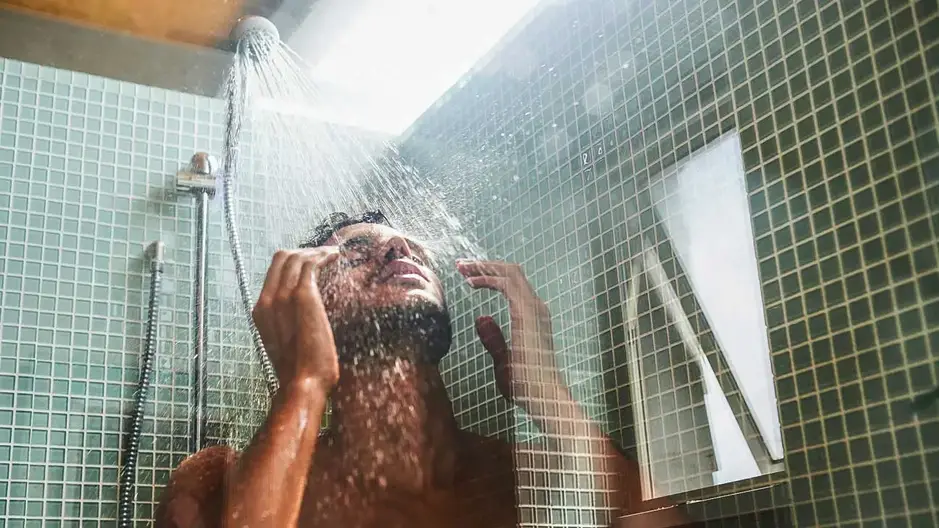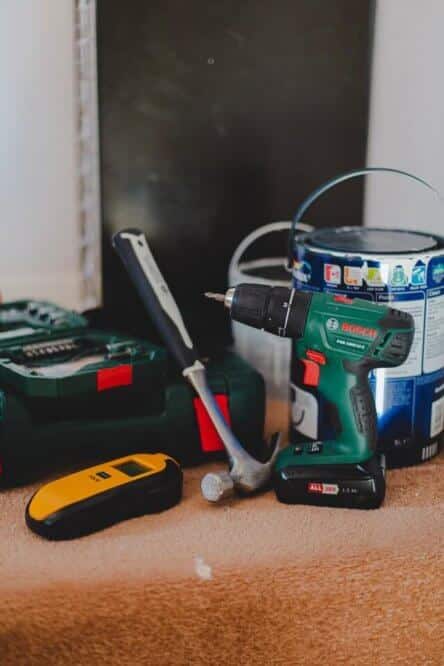Experiencing pipes knocking when got water is turned on can be irritating and worrisome, especially if it happens consistently. These knocking sounds are a common occurrence, particularly in older homes. However, they can occur in any plumbing system.
Understanding the causes behind this issue is important if you wish to find effective solutions. This article will explore why pipes knock when hot water is turned on. It will also provide practical solutions to address this problem.
Causes of Pipes Knocking When Hot Water Is Turned On

- Expansion and Contraction of CPVC Pipes
When hot water taps are turned on, the knocking sound is commonly a result of the expansion and contraction of CPVC pipes in the plumbing system. CPVC pipes are designed to accommodate temperature changes. They expand when heated water flows through them.
However, if there isn’t enough space for the pipes to expand freely, they can contact nearby surfaces, which results in knocking sounds. This issue is commonly observed by many homeowners. Therefore, proper planning for pipe expansion should be done when installing the plumbing system [1].
Another factor contributing to knocking sounds is poor construction and improper installation of CPVC pipes. When the pipes are not adequately supported or secured they become more susceptible to movement and contact with other objects, which amplifies the knocking noise.
Properly accommodating the expansion and contraction of pipes during installation is of utmost importance. It is good to seek the guidance of a plumber with the necessary expertise before you do this. They will assess the installation and identify any underlying issues.
Related: Can You Use PVC Glue on CPVC
- Blockages and Sludge Buildup
Over time, wear and tear occur in pipework, especially in hard water areas. Debris and sediment accumulate in the central heating system, particularly in older homes. This sludge buildup obstructs water flow and causes blockages in the supply pipes [2].
As water tries to pass through these blockages, it creates pressure surges. These surges result in knocking noises that are heard throughout the plumbing system. To address this issue, get a plumber to perform a power flushing service.
Power flushing involves using specialized equipment. The equipment flushes out the debris and sludge that hinder the smooth passage of water in the pipes. This restores proper water flow and eliminates the knocking noise.
Power flushing is a specialized task that requires professional expertise and equipment. Therefore, seek the assistance of a qualified plumber who can accurately diagnose the issue and perform the power flushing service effectively.
- High Water Pressure
When water is forced through the pipes at excessively high pressure, it can lead to vibrations and knocking noises. Maintaining water pressure within the recommended range is important to prevent this issue. The ideal water pressure range is typically between 45 to 80 pounds per square inch (psi). [source]
If your water pressure exceeds this range, it is best to install a pressure regulator. A pressure regulator acts as a control valve and helps stabilize the water pressure, ensuring it stays within safe levels that won’t cause damage to the pipes or create noise.
A pressure regulator helps control the water pressure, which prevents the occurrence of pressure surges and vibrations known to cause knocking sounds.
A skilled plumber will evaluate your water pressure and install a pressure regulator. Addressing high water pressure promptly is crucial to prevent potential long-term complications and maintain the durability of your plumbing system.
- Water Hammer
Similar to the momentum of any fluid in motion, flowing water also possesses momentum. This momentum causes shock waves to propagate throughout the system when there is a sudden change in the water flow. This phenomenon is commonly known as the “water hammer.”
Water hammer is a rampant issue that leads to knocking noises in plumbing systems. It commonly occurs when the air chambers fail in their function. Air chambers are small pipe lengths mounted on water pipes close to a fixture.
They act as shock absorbers that prevent rushing water from abruptly colliding with valves when the taps are closed.
However, over time, air chambers can lose their effectiveness. This happens as the water gradually replaces the air within the chambers, which diminishes their ability to stop the water flow abruptly. As a result, the water forcefully enters the valves and generates a knocking noise.
- Loose Fittings in Plumbing Pipes
Loose fittings in plumbing pipes are another culprit behind knocking sounds. As water constantly flows through pipes, fittings gradually become loose due to friction or improper installation. This loosening causes the pipes and fittings to vibrate, resulting in annoying knocking noises.
Securing loose pipes and fittings is crucial to address this issue. Plumbing straps or clips can hold the pipes firmly, thereby preventing excessive movement and minimizing vibrations. However, it is important to strike the right balance when fastening the straps or clips.
If tightened too much, it can restrict the natural expansion and contraction of the pipes, leading to potential damage. In addition to securing the pipes, adding foam insulation at the beginning and end of the pipes can further alleviate the problem.
Insulation helps reduce friction between pipes and nearby surfaces, effectively eliminating the noise caused by loose fittings. Please pay close attention to pipes in basements, crawl spaces, or areas with limited accessibility, as these sections are often more prone to problems.
- Copper Pipes
Copper pipes are commonly used in plumbing due to their durability and malleability. However, they are prone to expansion and contraction with temperature changes. When hot water flows through pipes, they expand and contract as they cool down.
This expansion and contraction, combined with abrasion and friction against joints, make knocking noises. There are a few solutions that address this issue. First, insulating the copper pipes with foam rubber helps prevent friction against other surfaces and reduces noise [3].
Lowering the temperature of the hot water can also help reduce the expansion of the metal pipes if the knocking noise persists and becomes extreme. It is advisable to seek help from a plumber who can assess the situation and provide appropriate solutions.
Related: Copper vs Plastic Pipes
Solutions to Address Pipe Knocking
- Identify and Address the Specific Cause
The first step in stopping hot water pipes from knocking is to identify the specific cause of the issue. Observing when and where the knocking noise occurs can help determine the most appropriate solution.
Is it only when hot water is running?
Is it throughout the entire plumbing system or localized to a specific area? Understanding the specific cause will guide you in finding the right solution.
- Adjust the water pressure
If high water pressure is the culprit behind the knocking sounds, consider adjusting the water pressure to a suitable range. This can be done by manually installing a pressure regulator.
A pressure regulator helps stabilize the water pressure and prevents it from reaching levels that can damage the pipes and create noise. It is advisable that you consult a plumber to help in adjusting the water pressure to avoid any potential issues.
Suppose high water pressure is identified as the root cause of the issue. Installing a pressure-reducing valve (PRV) to regulate the water pressure in your home is recommended [4].
A PRV helps maintain consistent and safe water pressure throughout the plumbing system, thus prolonging the lifespan of your pipes and fixtures.
- Install Water Hammer Arrestor or Restore Air Chambers
Water hammer arrestors are devices specifically designed to absorb the shockwaves created by sudden changes in water flow. These devices feature air chambers or pressurized air cushions that provide a buffer to prevent the knocking noise.
Water hammer arrestors effectively mitigate the issue by absorbing the excess pressure and allowing the water to flow smoothly.
Consult a plumber to install water hammer arrestors. This is because their correct placement and sizing are crucial for optimal effectiveness.
Water hammer arrestors provide a cushion of air or gas to absorb the shockwaves caused by the sudden stoppage or redirection of water flow. Older homes may have air chambers that have lost their effectiveness over time.
Therefore, restoring the air chambers’ functionality can significantly reduce or eliminate the knocking noises caused by the water hammer. This will prevent potential damage and prolong the life of the valves and pipes.
Maintenance and Upgrades
It is vital to prioritize proper maintenance and timely upgrades to ensure your plumbing system is free from knocking sounds. By incorporating the following practices, you can optimize system performance and enjoy a quieter and more efficient plumbing experience:
- Regular flushing: Periodically flush the plumbing system to eliminate sediment, mineral deposits, and debris. This will reduce the risk of blockages and flow restrictions that lead to water hammer and knocking noises.
- Inspection and replacement: Regularly inspect washers, valves, and other components for wear and tear. Promptly replace damaged parts.
- Upgrade materials: Consider upgrading outdated plumbing system materials, such as flexible hoses and shock-absorbing fittings. Seek guidance from a plumber for suitable upgrades.
- Pressure regulation: Monitor and adjust water pressure within the recommended range to avoid excessive stress on pipes and prevent water hammer. Installing a pressure regulator or reducing water pressure helps maintain a stable flow.
Read Also: Water Pipes Banging at Night
Conclusion
Knocking pipes when hot water is turned on is a sign of potential plumbing problems. Understanding the causes and implications of the issue and implementing comprehensive solutions ensures your plumbing system functions safely and efficiently.
While some issues can be resolved through DIY methods, contacting a professional is recommended for accurate diagnosis and repair. By taking proactive measures, you can maintain the integrity of your system and prevent costly repairs or damage to your property.

Michael Davis is a heating & plumbing expert who currently works as independent contractor in SC. He also writes for Plumbertip.
For almost 10 years he worked on various plumbing tasks across South Carolina.



